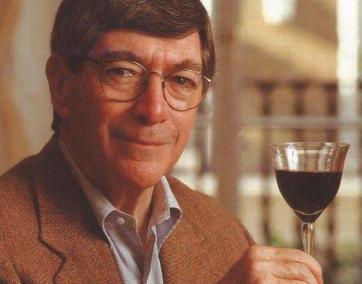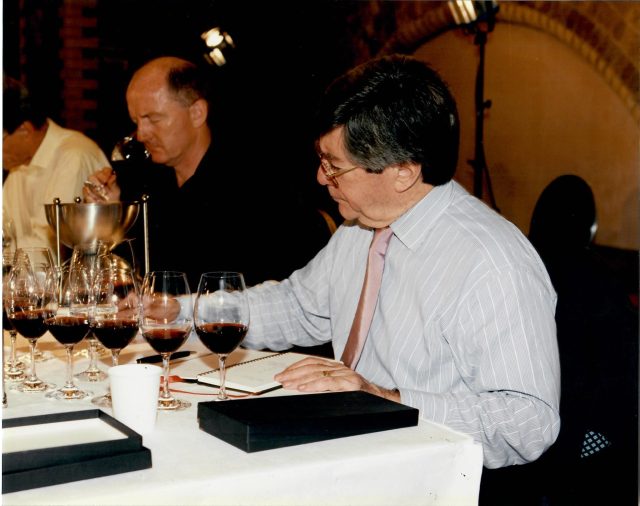Remembering Jack Keenan: 1936-2023
Former executive director at Diageo and db consultant Jack Keenan died peacefully last week aged 86. Robert Cole pays tribute to the man who helped create one of the world’s great drinks companies.

Jack Keenan helped to build Diageo, famed for Johnny Walker whisky, Tanqueray gin, and Guinness Irish stout, into one of the world’s largest and most successful drinks companies.
Born in New York, he cut his teeth as a business executive in the US at General Foods and Kraft Foods. Crossing the Atlantic in 1996 to join what was to become Diageo, Keenan became a naturalised English gentleman, epitomised by his informed and intelligent enthusiasm for cricket, a sport most Americans, and many others, find baffling.
In 1996, Keenan joined Grand Metropolitan, a London-listed food and drinks company, as CEO of International Distillers and Vintners. He almost immediately began talking to his new colleagues about a merger with either Guinness or Seagram.
In the fullness of time, both deals would be done albeit with measures taken to placate anti-trust concerns. The merger with Guinness, which created Diageo, came in 1997, little more than 12 months after Keenan joined GrandMet.
Seagram came in 2001 after a clutch of brands were sold to Pernod Ricard. Among the problems were anti-trust issues involving Cognac and LVMH.
Keenan was skilful and audacious. Interviewed in 2014 by the drinks business, Keenan recalled that Morgan Stanley, the bank, advised against bidding for Seagram because Diageo already had too great a share in some spirits categories.
Meanwhile, Pernod Ricard was suing Diageo in Japan, the US, and Brazil over distribution rights to Bourbon brand Wild Turkey. There were, therefore, more than the usual frictions of competition between Diageo and Pernod.
Indeed, when Keenan picked up the phone to Thierry Jacquillat, the Pernod Ricard chief, the Frenchman thought he was joking. Nevertheless, Keenan made the call. “I knew it was going to be messy but for many reasons I thought Pernod would be the ideal partner,” he said.
It wasn’t the first time Keenan put his almost-mischievous powers of analysis, logic, and curiosity to good use. In the mid-1980s, launching a new lemonade for General Foods called Country Time, Keenan enlisted advertising giant Ogilvy & Mather to help. The agency developed three alternative TV campaigns to launch the new brand. Keenan rejected O&M’s recommendation to use the campaign with the highest recall score among consumers.
Keenan also moved against the received wisdom that made test marketing a requisite. Keenan’s view was that pre-marketing would prompt an overpoweringly competitive response from Borden, owner of Wyler’s, the dominant existing brand at the time.
The risk paid off. Country Time became the leading national lemonade brand. “Jack was the best single marketing executive I ever worked with,” says Ken Roman, former chairman and CEO of Ogilvy & Mather Worldwide, who worked for the company for 26 years.
“He was intelligent and had brilliant marketing instincts. He was personally creative and effective in dealing with copywriters and art directors . . . But what made him different and better was that he was prepared to take risks if necessary.”
Keenan became respected for his skills in marketing on the international stage. International marketing is quite different from marketing as it is generally understood. International marketing requires the nurturing of individual country marketers, harmonising their independent skills and ideas while resisting the temptation to do any marketing oneself.
Keenan embraced change, as evidenced by his early adoption of email. Speaking with Global Networks magazine about working with IBM on a project to connect General Foods with the new computer tool, he said: “Communication is always difficult when you have people spread over the globe in different time zones… E-mail capability eliminates the time lag and makes everyone more productive.”
He spoke of its use in obtaining more-or-less instant information in a coffee business.
“Real time data is important when you are dealing with commodities,” he added.
Global Networks wrote: “Keenan became a fan of electronic mail in 1986 when he attended an IBM seminar in Brussels and watched one of the participants correspond on the spot with his office in Boston. When General Foods’ international headquarters was reorganised and relocated to the U.S. in 1987, Keenan led the effort to develop an international communications network.”

Like many remarkable leaders, Keenan knew it was essential to champion the cause of emerging talent.
Among those to be taken under Keenan’s wing was Sir Ivan Menezes. Keenan mentored the younger man in the late 1990s and early 2000s. Sir Ivan was Diageo chief executive from 2013 until his death earlier in 2023. Keenan’s principles of management revolved around what he characterised as “daunting but doable goals.”
When change was required, he would say fast and painful is better than slow and painful. Every decision, said Keenan, has one or two important variables which simplifies things to an extent.
Partner Content
The bigger challenge, of course, is to identify the correct elemental factors. “Surround yourself with great people,” he’d say. “Develop great strategy, then stick to it. Understand the earnings capacity of a business. Invest in strength. Test and learn. Be honest.”
In 2004 Keenan wrote an article entitled “Corporate Governance in UK/USA Boardrooms” for Corporate Governance International Review, and in 2011 he was co-editor for Routledge, the publisher, of a work called “Sustainability of Corporate Profits”.
He was director and then patron of the Centre for International Business and Management. In business and pleasure, Keenan interacted with the quiet assurance of those who know that good conversation comes among people who are eager to listen as well as talk.
Keenan was often congratulated for his finely calibrated palette – especially with Bordeaux vintages.
He backed restaurants including the Noble Rot. He was a generous supporter of British theatre, especially in London. The National Theatre, the Almeida, the Donmar, and The Royal Court were among those to benefit.
He was a founder director of National Angels, whose aim was the transfer of productions from the National Theatre to London’s West End and North America. Among the successes were ‘War Horse’, ‘People Places and Things’, ‘History Boys’, and ‘One Man Two Guvnors’.
An English major in Boston, Keenan usually studied texts before seeing the productions. The insights were a profound influence on choices made by National Angels.
More recently, Keenan backed ‘Prima Facie’ featuring Jodie Comer of Killing Eve TV fame.
Keenan died on 21 June 2023 at home in Suffolk, above his cellar of very fine wines, looking out over the English garden he made complete with greenhouses and willows grown for cricket bat production, following extended and determined treatment for several cancers.
He is survived by Linda, his wife, and his son Christopher.
- Obituary prepared on behalf of the Keenan family by Robert Cole.
About Jack Keenan
Jack – John Michael Keenan – was born in Flushing, New York on 20 October 1936.
He graduated Phi Beta Kappa from Tufts University in Boston and gained an MBA from Harvard.
Early in his career, Keenan worked for Colgate Palmolive and Leo Burnett Advertising.
By the end of 1963 he was a product manager at General Foods, moving up with roles in new product development, corporate strategy, and mergers and acquisitions (M&A).
Keenan spent five years in Brussels when he was president of General Foods Europe (1982-1987). He travelled to England on many weekends for theatre, wine auctions, racing at Royal Ascot and Cheltenham, and to begin his love affair with cricket.
Elsewhere in business Keenan was non-executive chairman of FTSE 100 listed Stock and AIM-listed Revolymer.
He served as an executive director of Moët Hennessy as well as Diageo and as a non-executive at Marks and Spencer, Tomkins, The Body Shop International, and General Mills Inc.
The list is testament to the respect Keenan earned as a business executive, colleague and an individual.
Related news
Castel Group leadership coup escalates
For the twelfth day of Christmas...
Zuccardi Valle de Uco: textured, unique and revolutionary wines




